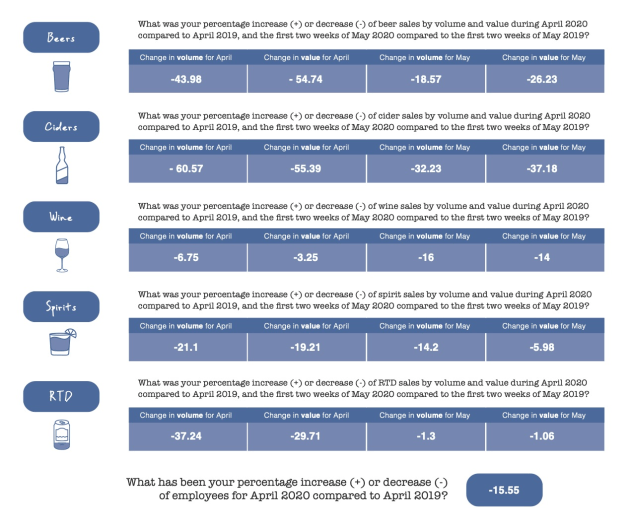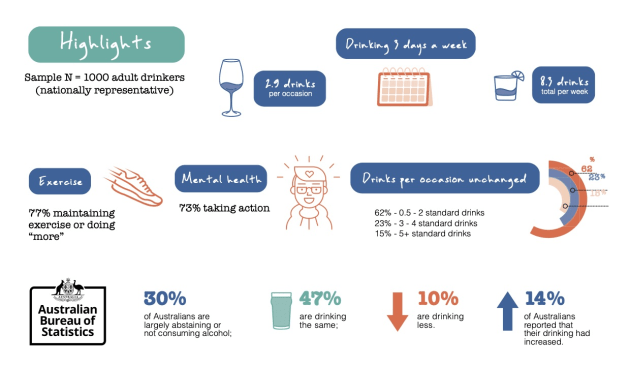April was the worst month on record for beer, wine and spirits sales, a report on the impact of COVID-19 on the drinks industry says. Released by Alcohol Beverages Australia, the report found that despite initial stockpiling in March, sales figures were consistent with Australian Bureau of Statistics data which showed a fall in consumption.
ABA CEO Andrew Wilsmore said: “The biggest category, beer saw a 44 per cent drop in April and cider saw the biggest decline at 61 per cent due to the loss of social occasions.
“Wine producers are also reporting volume losses of up to 70 per cent among small and medium sized enterprises who rely on restaurants as their main route to market. Major wine brands suffered a small decline in April before falling 16 per cent in the first two weeks of May.
“Local distillers witnessed revenue declines of up to 80 per cent due to the sudden closure of distillery doors and regional tourism in late March. Overall, spirits (21 per cent volume decline in April) and RTDs (37 per cent volume decline in April) show both a tale of woe and resilience.

“We knew that the total loss of trade from pubs, bars, clubs, and restaurants was never going to be made up for by a brief, small surge in panic buying during the week people were concerned bottleshops would also close.”
The ABS found 85.6 per cent of Australians were drinking responsibly during the pandemic shutdown, with most people’s behaviour either unchanged or reduced.
“The ABS data shows that 30 per cent of Australians are largely abstaining or not consuming alcohol; 47 per cent are drinking the same; and 10 per cent are drinking less. Only 14 per cent of Australians reported that their drinking had increased,” Wilsmore said.
“Our sector has been the most severely impacted by the coronavirus pandemic as lockdowns and social distancing forced the closure of pubs, bars, clubs, and restaurants. The loss of jobs and revenue in this sector has been crippling.
“At the peak of isolation measures, 441,400 jobs had been lost in hotels, pubs, clubs, restaurants, cafes, takeaway, coffee shops, accommodation hotels and casinos. This represents a loss of a third of their total workforce.
“The hospitality sector has seen an $8.5 billion fall in revenue, which represents 10 per cent of their annual sales.
“The drinks industry was not immune to these employment effects, given its heavy reliance on hospitality and tourism, experiencing a 15.55 per cent workforce decline that severely impacted the livelihoods of many Australians.”







